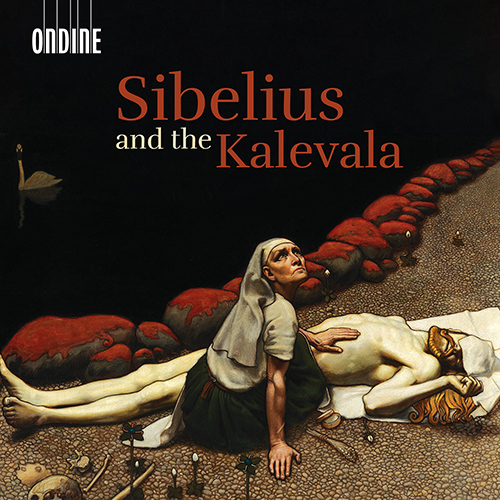This month’s release highlights from the Naxos Music Group include Richard Strauss’ Josephs Legende, conducted by the brilliant Fabrice Bollon; the newest addition in the ‘Music of Brazil’ series featuring works by César Guerra-Peixe; the world premiere recording of Reza Vali’s moving cycle entitled The Being of Love; Michael Dellaira’s opera The Leopard presented by multi-award winning conductor Gerard Schwarz; an audiovisual recording of Carl Nielsen’s Maskarade staged by Tobias Kratzer; Florence Price and Leo Sowerby’s string quartets; Martin Cousin presenting the 61st instalment in Franz Liszt Complete Piano Music; and more. Klaus Heymann, founding chairman of Naxos, puts the spotlight on his personal picks.
People don’t usually associate Richard Strauss with the world of ballet, hence Josephs Legende is one of his less well-known orchestral scores. But I predict that this complete recording of the highly evocative work will be a major attraction among our new releases this year. Strauss’ exotic instrumental colouring, combined with his stated intent to rejuvenate dance into a ‘purely inspirational form’ dedicated to ‘absolute beauty’, marks him as a natural ballet composer; and this score demonstrates his orchestral mastery as keenly as any other of his symphonic works. Josephs Legende is a parable about the struggles between good and evil based on the familiar Old Testament story of the slave boy Joseph. It’s masterfully brought to life by the Staatskapelle Halle, one of central Germany’s largest and greatest symphony orchestras. They’re directed by Fabrice Bollon, the orchestra’s musical director and chief conductor since the 2022/23 season.
We’re now about two years into our Music of Brazil series, and the enthusiasm with which it was first greeted has been gratifyingly sustained during the many subsequent releases. Collectively, they have become a symbol for vibrant recordings of tremendously exciting performances, often featuring major discoveries of new music from a previously rather isolated source. This is the series’ second album to feature the music of César Guerra-Peixe (1914–1993) and comprises three of his best-known orchestral works. The performers are the same as on that previous album which featured his Symphonic Suites (8.573925): ‘Neil Thomson leads some sparkling performances from the Goiás Philharmonic, and the engineering allows instrumental detail to shine through’ (Gramophone); ‘An hour of Guerra-Peixe’s most exhilarating and exuberant music is a considerable discovery and cause for celebration’ (MusicWeb International); ‘If you’re looking for a new discovery that you’ll play and enjoy often, then you’ll definitely want to get this terrific disc forthwith.’ (ClassicsToday.com)
A native of Iran, subsequently a student in Europe, and now a resident of the United States, award-winning composer Reza Vali has been described as the ‘Persian Bartók… a composer of wonderful clarity, precision and effectiveness.’ (Pittsburgh Tribune-Review) This album features the first recordings of three works that were all commissioned and premiered by the Pittsburgh Symphony Orchestra. Ravân, the dazzling programme opener, is followed by The Being of Love, a five-movement cycle that sets one text by 13th-century poet and mystic Rūmī, two traditional texts, and words by Vali himself. Evoking different aspects of love, they’re beautifully captured by soprano Janna Baty, recognised for her ‘opulent sound and spirit.’ (Boston Herald on 8.557224, Vali’s Folk Songs, Set No. 10) Finally, Isfahan uses Persian modes and forms, and is among Vali’s most striking works to use microtonality. Conducting the Württembergische Philharmonie Reutlingen is Fawzi Haimor, the orchestra’s music director from 2017 to 2020.
![]()
American composer Michael Dellaira has earned a considerable reputation for his series of operas, of which The Leopard is the latest to be recorded. With a libretto by the distinguished poet J.D. McClatchy, it charts social and political upheavals during Italy's 19th-century Risorgimento movement. Previously, Dellaira’s The Secret Agent was named Laureat of the 2011 Armel International Opera Festival, and his The Death of Webern was named one of the Five Best New Works of 2016 by Opera News. The Leopard’s premiere, conducted by Gerard Schwarz, was exceptionally well received and described as ‘superbly crafted.’ (Opera Magazine) Gerard has an extensive Naxos discography to his credit and is the recipient of eight Emmy Awards and fourteen GRAMMY nominations. Leading the strong cast of singers is baritone Kim Josephson, well known for his numerous roles at New York’s Metropolitan Opera during more than 250 performances; mezzo-soprano Robynne Redmon, who has similarly appeared at The Met and other distinguished American and European opera houses; and Minghau Liu, winner of the 2020 Pesaro International Music Competition in Italy.
![]()
Although Nielsen’s Maskarade is regarded as Denmark’s national opera, there's only one audiovisual production of the work currently available on Capriccio. This vibrant new production represents Maskarade’s premiere at Oper Frankfurt. Performed in a brand-new German translation by Martin G. Berger, it’s sure to generate much interest and be eagerly welcomed by Nielsen’s many fans. Anyone new to the opera will find it genuinely funny (often an elusive quality) and will readily appreciate the spirited dancing, superb acting and Nielsen’s highly individual harmonic style and lyrical expressiveness. The stage director is Tobias Kratzer, ‘[who] handles the intricate plot with admirable clarity… mixing elements of slapstick and surrealism – I’ve rarely seen an audience laugh so hard.’ (bachtrack.com) The same reviewer noted that ‘presiding over the evening was Titus Engel, who led the Oper Frankfurt Orchester in a virtuoso performance of Nielsen’s fiendish score.’
Also available on Blu-ray Video (NBD0174V)
Florence Price and Leo Sowerby were both prominent members of the Chicago music community in the 1930s and 1940s, and they are known to have respected each other’s work. Sadly, their outputs subsequently met with undue neglect, rather than the wider respect it deserved. Most of Price’s compositions remained unpublished at her death, and her String Quartet in A minor was never performed in her lifetime. So, I’m very pleased that this release will contribute to the renaissance of her reputation, something that has been gathering momentum since the rediscovery of a significant number of her manuscripts some fifteen years ago. Similarly, this premiere recording of Sowerby’s String Quartet in G minor reveals a work undeserving of its decades of obscurity. The performances are by the outstanding Avalon String Quartet, whose acclaimed recording of the complete quartets of Matthew Quayle for Naxos (8.559851) had American Record Guide judging them ‘ubiquitously stunning… their performance of these works blazes a strong path for future interpretations of Quayle’s work… this will delight listeners again and again.’
This is Volume 61 in our Liszt Complete Piano Music edition, adding to the wealth of opera transcriptions already recorded in the series. Such programmes always seem to have a special appeal. Volume 52, for example, (Transcriptions from Operas by Auber and Verdi, 8.573714) had AllMusic.com declaring that ‘the entire program is joyful and enjoyable.’ Included in the programme for this latest album is the Rondeau fantastique on Manuel García’s El Contrabandista, one of the most technically demanding pieces Liszt ever composed. There can be no finer performer to meet such a challenge than Martin Cousin, who is regarded as one of the most exceptional pianists of his generation, having been awarded First Prize at the 2005 Ettore Pozzoli International Piano Competition and the Gold Medal at the 2003 Royal Over-Seas League Annual Music Competition.
Our Great Composers in Words and Music series consists of mini-biographies that are read by acclaimed actors and narrators and are illustrated with musical excerpts. The biographies, full of fascinating detail and anecdote, are written in a highly approachable style. Previous instalments have been devoted to J. S. Bach, Mozart, Beethoven, Chopin, Debussy, Satie, Tchaikovsky, Dvořák and Mendelssohn. Now it's Robert Schumann who falls under the spotlight in a survey of his life that was eventually defined by psychological decline, but which previously sported a literary genius and whose writings – as a music critic, poet, novelist and dramatist – eclipsed his musical creativity. Does his music suggest he suffered from bipolar disorder? How did his pianist wife, Clara, influence his compositions? The narration is illustrated with some of Schumann’s finest music, while the narrator is Leighton Pugh, a successful and prolific narrator of audiobooks who has worked at the National Theatre in London.
Visit the mini-site.

Completed in 1873, Bruckner’s Third Symphony has always been considered something of a problem child, from its disastrous first performance until well into the 20th century, notwithstanding the enthusiastic reception it received from a young Gustav Mahler. In its original form, it’s the longest, most Wagnerian of his symphonies that is often considered, rightly or wrongly, the first truly Brucknerian symphony. While some cherish the uncompromising originality of the first version, Bruckner himself preferred the much tighter 1889 third version, finding it ‘incomparably better’. This recording is part of Capriccio’s ongoing Complete Versions Edition that includes all versions of Bruckner’s symphonies published or to be published under the auspices of the Austrian National Library and the International Bruckner Society in the Neue Anton Bruckner Gesamtausgabe (New Anton Bruckner Collected Works Edition). The project concludes in June 2024, coinciding with the 200th anniversary of Bruckner’s birth. The sole conductor for the project is Markus Poschner, who recently received the ICMA’s Lifetime Achievement Award for this monumental cycle.
Miloslav Kabeláč is yet another composer whose decades-long neglect since his death in 1979 cries out for some correction, and I’m confident that this 3-disc set of the Czech composer’s complete chamber works will enjoy a wide appeal and be well suited to the task. Although his eight symphonies and the great orchestral passacaglia Mystery of Time may be better known, this collection of Kabeláč’s chamber music represents the full gamut of his fifty-year development as a composer, who stood firm against a totalitarian regime’s requirement to write in a more politically determined style. The comprehensive account of his chamber output ranges from the early horn and cello sonatas, through to his Suite for Saxophone, and concludes with the dramatic chamber cantata Osudová dramata člověka. Many of the distinguished performers on the recordings are also noted enthusiasts for Kabeláč’s music, not least oboist Albrecht Mayer and cellist Jan Vogler.
Ferrucio Busoni’s unfinished opera Doktor Faust, subsequently brought to completion by his student Philipp Jarnach, is based on the well-known story of Goethe’s play, yet with a structure that reflects his unique conception: two Prologues, a beautiful orchestral Intermezzo, and three Scenes that combine to produce one of Busoni’s most creative and unsettling works. This audiovisual production from Maggio Musicale Fiorentino marks the centenary of Busoni’s death. Director Davide Livermore and conductor Cornelius Meister certainly impressed the critics. On the production, La Nazione Firenze commented that ‘it would be difficult to imagine a realisation more effective and convincing for a work of such complexity… always intelligible and engaging’; while Corriere Fiorentino noted how ‘everything musically works perfectly’ with Meister’s reading of the score ‘a revelation.’
Also available on Blu-ray Video (DYN-57998)
This is the second volume in Grand Piano’s complete edition of piano solo and duo works by Vittorio Rieti (1898-1994). As with Vol. 1, many items are heard in their world premiere recording. The programme displays the youthful and occasionally mischievous approach of a composer who frequently put a smile on the face of his music, uniting a fondness for brevity with melodies reminiscent of the atmosphere of Parisian clubs. The Chess Serenade has a touch of Broadway about it, while the dance character of many of the pieces reflects Rieti’s successful work for the stage. Pianists Giorgio Koukl and Virginia Rossetti are set to repeat the success of Vol. 1 (GP921): ‘The performances are faultless and the sound excellent.’ (American Record Guide) Rieti’s music has a similar appeal to that of Poulenc and other members of ‘Les Six’. Once discovered, I predict there will be few fans of good piano music that will be able to resist its charms.
Since its foundation in 2013, the Berliner Operngruppe has made a name for itself by giving annual, semi-staged first performances in Berlin of works such as Donizetti’s Deux hommes et une femme and Betly, together with other operatic rarities. This album is the world premiere recording of Donizetti’s 1838 opera Dalinda, a work that had a brush with the censors, similar to that experienced by his opera Lucrezia Borgia, and disappeared unperformed until it was rediscovered a few years ago by the musicologist Eleonora Di Cintio, in whose critical RICORDI edition it’s heard here. The cast is led by soprano Lidia Fridman, who was included in OperaWire’s 2019 list of Top Ten Young Opera Singers, while the orchestra was commended by Opera Online for its ‘enthusiasm and spirited playing – including an excellent section of horns – under the direction of Felix Krieger.’
Sibelius discovered the Kalevala, Finland’s national epic poem, during his student years in Vienna, subsequently composing his breakthrough Kullervo symphony, which is based on one of its tragic stories. Immersing himself in the ancient tales, he followed with Lemminkäinen Legends; also En Saga. To avoid becoming exclusively associated with the national epic, Sibelius gave more neutral titles to his works from the 1900s onwards. Still, the world of the Kalevala never totally left him: his tone poem Luonnotar (1913) for soprano and orchestra, The Oceanides (1914), and some of his final works, including the tone poem Tapiola (1926), all reflect on the themes of the Kalevala. This digital-only album, which is a collection of existing recordings, presents some of Sibelius’ finest works that were inspired by those legends. Three-and-a-half hours of fine performances by the cream of Finland's orchestras, conductors, choirs and soloists will surely make this release a best-seller.
First released in 1973, this recording has been given a new lease of life by the digital remastering of the original Elite Recordings tapes. These were made by producers Marc Aubort and Joanna Nickrenz and are considered by audiophiles to be amongst the finest sounding examples of orchestral recordings. This programme of works for solo piano and orchestra by Chopin features Abbey Simon, a great American pianist in the great Romantic tradition, who imbued his effortless virtuoso technique with a uniformly clear sound. He passed away in 2019, at the age of ninety-nine; the majority of his recorded output was for the Vox label. Accompaniment is by the Hamburg Symphony Orchestra under Heribert Beissel, the orchestra’s chief conductor from 1971 to 1985.
































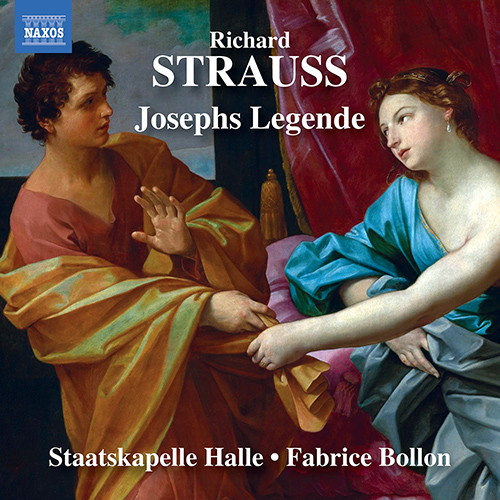
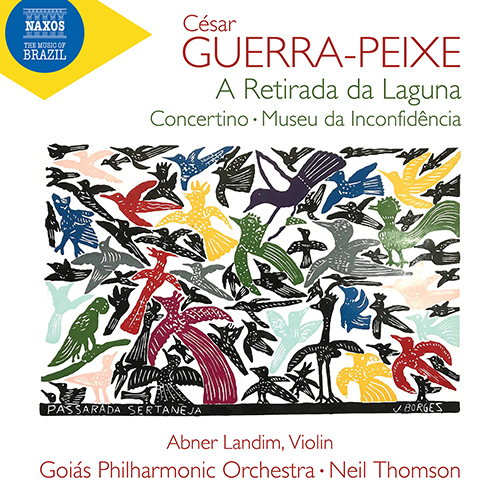

![DELLAIRA, M.: Leopard (The) [Opera] DELLAIRA, M.: Leopard (The) [Opera]](https://cdn.naxos.com/sharedfiles/images/cds/hires/8.669052-53.jpg)
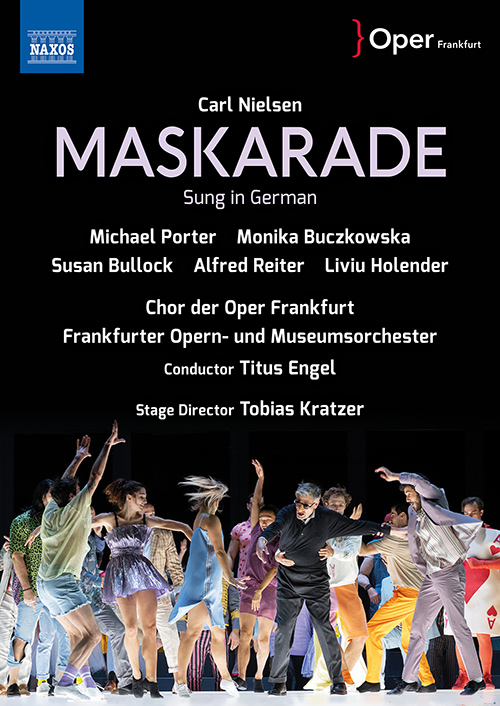
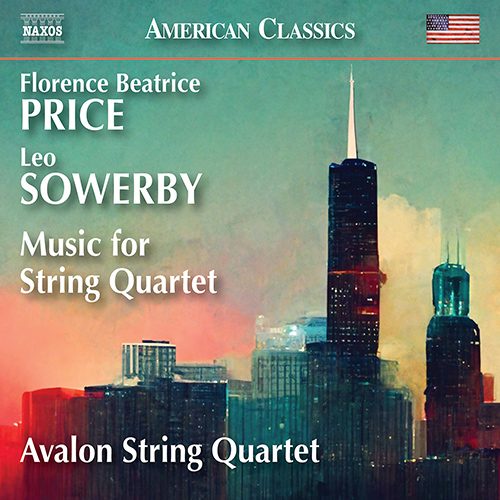
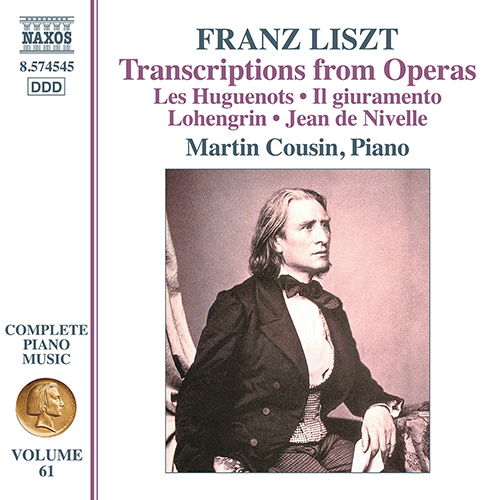
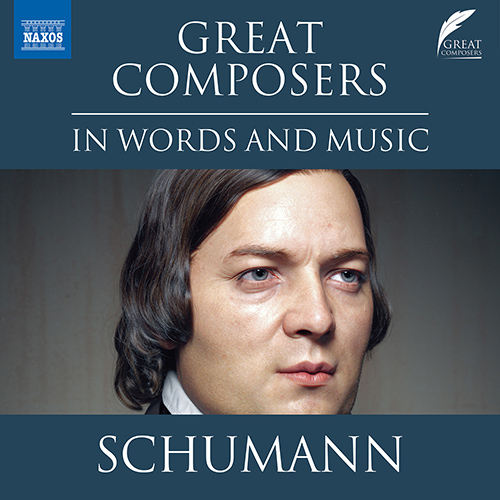
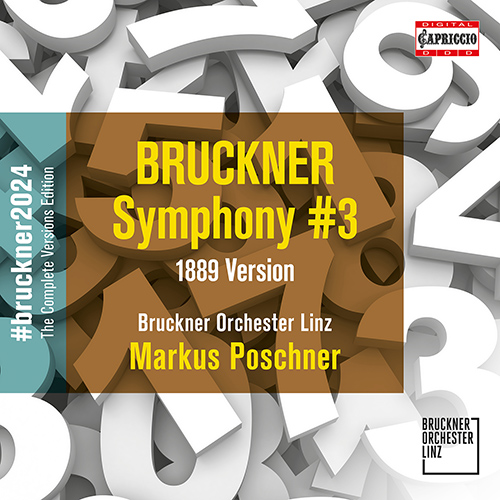
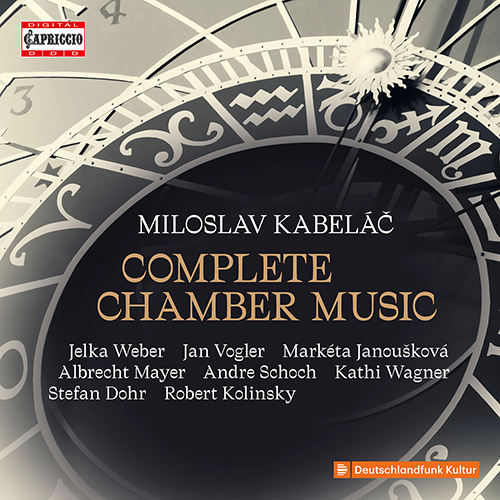
![BUSONI, F.: Doktor Faust [Opera] (Maggio Musicale Fiorentino, 2023) (NTSC) BUSONI, F.: Doktor Faust [Opera] (Maggio Musicale Fiorentino, 2023) (NTSC)](https://cdn.naxos.com/sharedfiles/images/cds/hires/DYN-37998.jpg)
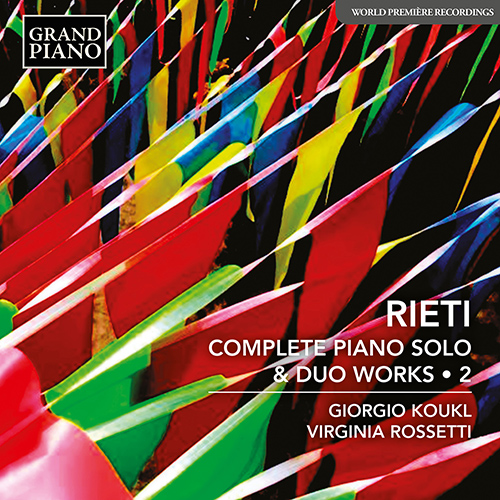
![DONIZETTI, G.: Dalinda [Opera] DONIZETTI, G.: Dalinda [Opera]](https://cdn.naxos.com/sharedfiles/images/cds/hires/OC989.jpg)
